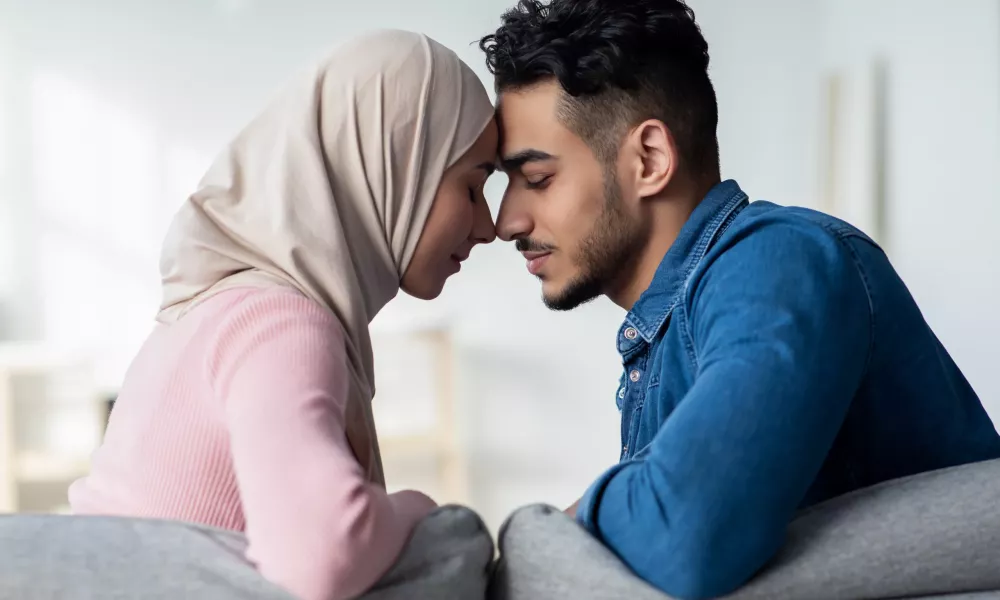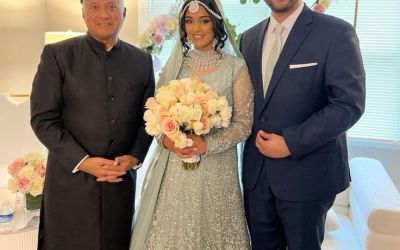
Court marriage for Muslims in Abu Dhabi
Table of Contents ▼
If these are your queries, then you are in the right place. In this blog, we will explain in detail whether court marriage is allowed for Muslims in Abu Dhabi and the legal requirements of court marriage for Muslims in Abu Dhabi.
Difference Between Court Marriage and Civil Marriage
Before explaining the procedure of court marriages for Muslims in Abu Dhabi, it is important that we know the difference between court marriages and civil marriages for Muslims in Abu Dhabi.
Generally, we use the terms court marriages and civil marriages interchangeably. Although both are similar, there is still a difference. Court marriages are conducted specifically in a court under legal procedures. It follows strict guidelines defined by law and is overseen by a judge or magistrate.
On the other hand, civil marriage is a broader term for any non-religious legal marriage conducted by a government official. It can occur in various venues, like a city hall or registrar’s office, not just a court.
Overview of Muslim Court Marriage in Abu Dhabi
Court marriage for Muslims in Abu Dhabi is now allowed. Court marriages for Muslims are performed in Sharia law in Sharia court.
Legal Requirements for Court Marriage For Muslims in Abu Dhabi
- Age: Both parties must be at least 18 Hijri years old. If younger, judicial approval is required.
- Consent: Both parties must give their free and informed consent to the marriage.
- Guardian’s Consent: The bride’s father or male guardian’s consent is necessary.
- Premarital Medical Test: Both parties must undergo a premarital medical test.
- Witnesses: Two male Muslim witnesses are required to be present during the marriage contract signing.
- Marriage Contract: A formal marriage contract (Nikahnama) must be prepared and signed by both parties, their guardians, and the witnesses.
- Registration: The marriage must be registered with the relevant Sharia court in Abu Dhabi
Note: The above information is taken from the official site of UAE. The law might change with time. Therefore, it is advised to consult official sources before making any decision.

Provision of Sharia Law in Court Marriages for Muslims in Abu Dhabi
Muslim court marriages are performed under sharia law in Sharia court in Abu Dhabi. According to the Sharia law, both the bride and groom need to be Muslim if they want to marry through the Sharia court in Abu Dhabi.
Moreover, a Muslim man (Groom) can also marry a woman (Bride) who is Ahl Al-Kitaab which includes Christians and Jews. But a Muslim bride can’t marry a non-muslim man.
Role of the Sharia Court in Court Marriages for Muslims in Abu Dhabi
The Sharia Court in Abu Dhabi plays a key role in court marriages for Muslims, ensuring that the marriage complies with Islamic principles and legal requirements. Here’s its role:
- Legal Oversight:
The Sharia Court oversees the marriage process, ensuring it adheres to Sharia law. - Document Verification:
The court verifies essential documents, such as:- Passports or IDs.
- Proof of the couple’s religion (Muslim faith).
- If applicable, proof of the bride’s guardian (wali).
- Guardian (Wali) Approval:
The presence and consent of the bride’s guardian (wali) are mandatory, and the Sharia Court ensures this requirement is met. - Witnesses:
The court requires two Muslim male witnesses to validate the marriage contract (Nikah). - Dowry (Mahr):
The court confirms that a dowry (mahr) is agreed upon between the bride and groom as part of the marriage contract. - Issuance of Marriage Certificate:
Once all conditions are fulfilled, the Sharia Court officially registers the marriage and issues a legal marriage certificate. - Ensuring Consent:
The court ensures the marriage is conducted with the free consent of both parties.
In summary, the Sharia Court serves as a legal authority to formalize and validate Muslim marriages according to Islamic law while safeguarding the rights of both parties.
Key Differences: Muslim vs. Non-Muslim Court Marriage
Here are the key differences between Muslim and Non-Muslim court marriages in Abu Dhabi:
| Aspect | Muslim Court Marriage | Non-Muslim Court Marriage |
| Governing Law | Based on Sharia Law. | Based on civil (secular) law. |
| Court Authority | Conducted in the Sharia Court. | Conducted in the Civil Marriage Court. |
| Religious Requirements | Requires adherence to Islamic principles. | No religious requirements; follows a neutral process. |
| Bride’s Guardian (Wali) | Mandatory for the bride to have a wali (guardian). | Not required. |
| Witnesses | Requires two Muslim male witnesses. | No witnesses are required. |
| Dowry (Mahr) | Mandatory for the groom to provide mahr | Not applicable. |
| Consent Verification | Verified through the bride’s wali and court judge. | Verified directly between both parties. |
| Eligibility | For Muslims (or a Muslim man marrying a non-Muslim woman). | Open to all non-Muslims, regardless of nationality. |
| Legal System | Marriage follows Islamic legal procedures. | Follows the UAE’s secular family law. |
| Ceremony Requirements | More formal with religious undertones. | Simple, administrative process without religious ties. |
| Documentation | Proof of religion, wali ID, medical certificate, etc | Basic documents like passports, IDs, and medical tests. |
What is the Difference Between Civil and Islamic Marriage?
The key difference between civil marriage and Islamic marriage lies in their legal and procedural frameworks. Civil marriage is a secular, non-religious process conducted under state laws, making it accessible to people of any faith or nationality.

It involves a simple administrative process without religious customs, and there is no requirement for a bride’s guardian (wali), witnesses, or dowry. It focuses solely on legal formalities, ensuring the marriage is officially recognized by the state.
On the other hand, Islamic marriage follows Sharia law and is rooted in religious principles. It requires the presence of a wali (guardian) for the bride, two male Muslim witnesses, and an agreement on the dowry (mahr) provided by the groom.
The marriage is formalized through a Nikah ceremony, ensuring that all Islamic obligations are fulfilled. While civil marriage is a neutral process, Islamic marriage is deeply tied to religious traditions, reflecting its spiritual and legal significance in Islam.
How much is Mahr in UAE for Muslim Court Marriages?
In the UAE, there is no fixed amount for mahr (dowry) as it depends on the mutual agreement between the bride and groom or their families. However, to encourage simplicity and reduce financial burdens, the UAE government has promoted a reasonable mahr system.
Typically:
- For UAE nationals, the mahr is often kept modest, with the average ranging between AED 20,000 to AED 50,000.
- For expatriates, the amount can vary widely depending on cultural customs and personal agreements.
The mahr can be given in two parts:
- Prompt Mahr (paid at the time of marriage).
- Deferred Mahr (to be paid later, often in case of divorce or death).
The focus in the UAE is on keeping mahr affordable to ensure marriages are accessible and not delayed due to financial reasons.

How much is a court marriage in Abu Dhabi?
Court wedding costs in Abu Dhabi typically start at around $960 (3500 AED). Prices for court marriage packages vary depending on the services provided. Here are some options:
Express Court Marriage: Starting from $960 / 3500 AED
Basic Court Marriage Package: Starting from $1930 / 7100 AED
Application Support Package: Starting from $1160 / 4250 AED
Additional fees may apply based on specific requirements and documentation. For the most accurate information, it’s recommended to consult local authorities or a wedding planner.
Can Muslims do civil marriage in UAE?
Yes, it is now allowed for Muslims to have a civil marriage in UAE. The only exception is UAE Muslim nationals.
How many days is Muslim marriage in UAE?
Muslim marriages in the UAE can generally take from 1 to 3 weeks. However, the duration may vary based on the situation.



